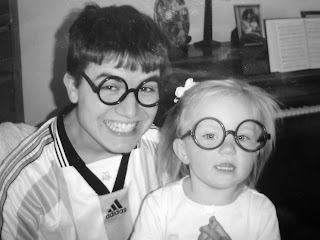For the heck of it, emily and I held our own academy awards. We asked some family and friends to nominate and vote for their favorite movies (actors, acresses, etc.), to see what would happen in contrast to the Oscars. So we had 7 nominators and 12 voters in all! Thanks to those who participated:) See you next year.
And, a while ago Salt Lake City film critic
Sean P. Means said that if the Oscars were left to the masses, not the elite, Pirates of the Caribbean would win for best picture because it made the most money. In this instance of a small sample of mass, he's wrong - Pirates won for technical awards, but wasn't even nominated for best picture. Goes to prove that while people shell out money for spectacular entertainment, people generally know when they see quality movies.
And the winners are:Best Picture: Tie between The Prestige and Stranger than Fiction
Oscar picked: The Departed
Best Comedy: Nacho Libre
Best Animated Feature: Tie between Over the Hedge and Cars
Oscar picked: Happy Feet
Best Foreign Film: Nacho Libre :)
Oscar picked: Leben der Anderen, Das
Best Actor: Kevin Spacey, Superman Returns
Oscar picked: Forest Whitaker, The Last King of Scotland (obviously a late nod to his work in "Bloodsport."
Best Supporting Actor: Philip Seymour Hoffman, MI:3
Oscar picked: Alan Arkin, Little Miss Sunshine
Best Actress: Meryl Streep, The Devil Wears Prada
Oscar picked: Helen Mirren, The Queen
Best Supporting Actress: Natalie Portman, V for Vendetta
Oscar picked: Jennifer Hudson
Best Director: J.J. Abrams, MI:3
Oscar picked: Martin Scorsese, The Departed (and Raging Bull...and Goodfellas...)
Best Art Direction: Tie between Superman Returns and Flyboys
Oscar picked: Pan's Labrynth
Best Original Screenplay: Tie between Rocky Balboa and The Fountain
Oscar picked: Little Miss Sunshine
Best Adapted Screenplay: The Prestige
Oscar picked: The Departed
Best Short, Live Action: Der Ostwind
Oscar picked: West Bank Story
Best Cinematography: The Prestige
Oscar picked: Pan's Labrynth
Best Sound: Pirates of the Caribbean: Dead Man's Chest
Oscar picked: Dreamgirls
Best Costume Design: The Devil Wears Prada
Oscar picked: Marie Antoinette
Best Makeup: Pirates of the Caribbean: Dead Man's Chest
Oscar picked: Pan's Labrynth
Best Visual Effects: Night at the Museum
Oscar picked: Pirates of the Caribbean: Dead Man's Chest
Best Original Musical Score: The Fountain
Oscar picked: Babel
Best Song: "I am I am", Nacho Libre
Oscar Picked: "I Need To Wake Up", An Inconvenient Truth
 When I was living at my Grandma Blakesley's house I stumbled upon a few "one subject" spiral notebooks. I'm not sure what Grandma used them for, if anything, but I've habitually used them since for a journal/idea book that I take with me most places. I think of her a lot when I use them.
When I was living at my Grandma Blakesley's house I stumbled upon a few "one subject" spiral notebooks. I'm not sure what Grandma used them for, if anything, but I've habitually used them since for a journal/idea book that I take with me most places. I think of her a lot when I use them.


